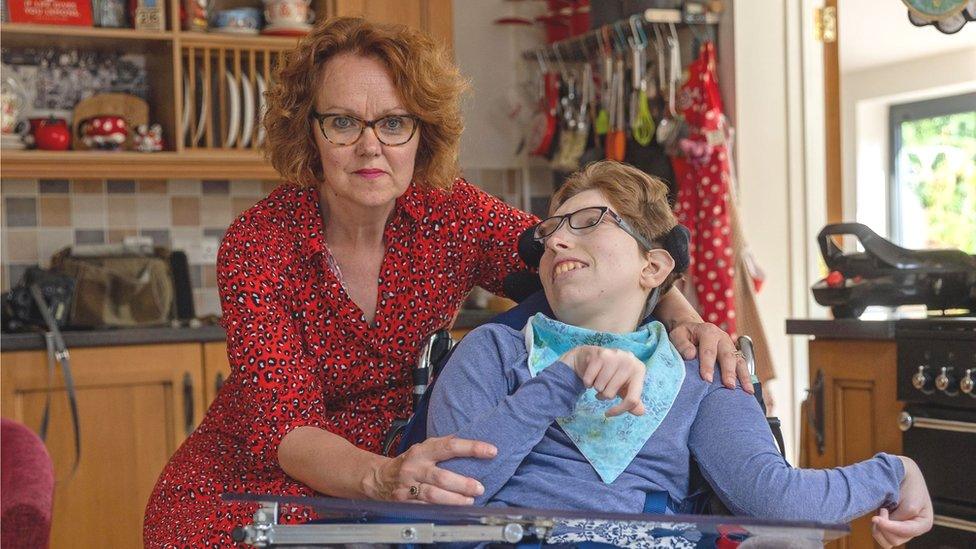Disability: Supported living and its unlikely student digs origins
- Published
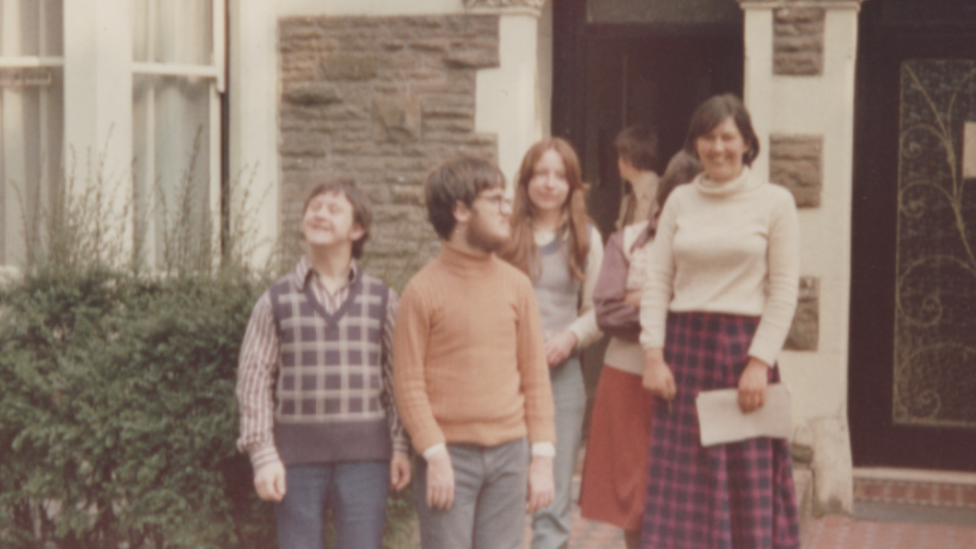
A ground-breaking house share of students and disabled people paved the way for supported living in the 1970s
When 19-year-old student Jim Mansell invited a young man with Down's syndrome to move into his student digs, little did he know it would be the catalyst for ending institutionalised care for disabled people.
The ground-breaking house share at 12 Ruthin Gardens, in Cardiff, paved the way for modern-day supported living, ending a long and inglorious history of people with disabilities being consigned to institutions.
This little-known story is now being told in a play, performed at the city's Sherman theatre, just a stone's throw from the student house that inspired it.
"The story of Jim Mansell... somebody who develops a vision and changed the world - I thought 'somebody should make a Hollywood movie out of this'," said writer Tim Green.
He first came across the story behind his new play Housemates after reading Jim's obituary in the Guardian newspaper in 2012.
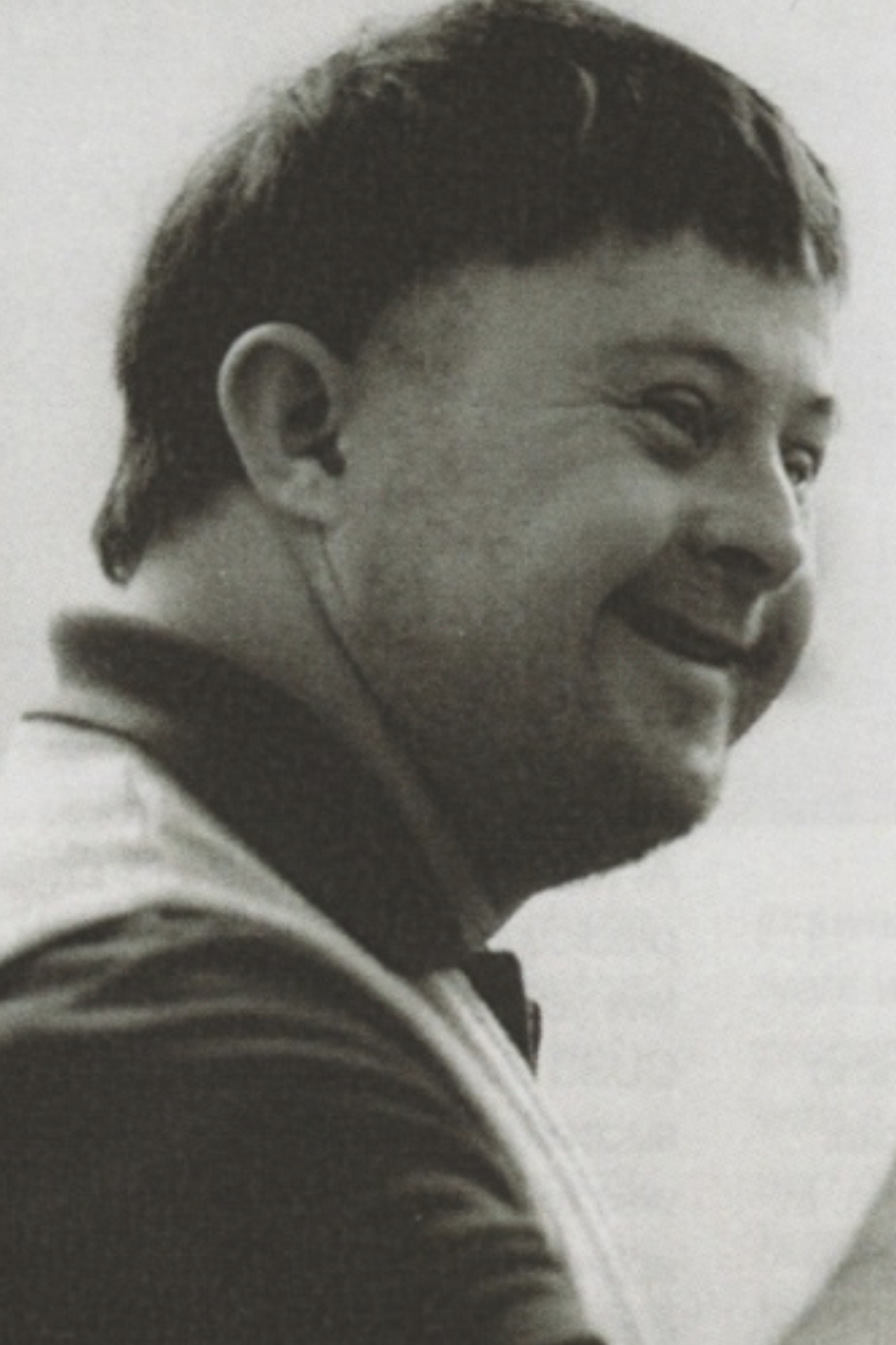
Alan had lived at Ely Hospital since childhood before moving into 12 Ruthin Gardens
"It's had a legacy absolutely around the world and changed the lives of hundreds of thousands of people in Britain but millions of people around the world," he said.
Before meeting Jim, Alan Duncan, a young man with Down's syndrome, had lived at Ely Hospital in Cardiff since childhood.
But in 1967, a shocking report by the News Of The World revealed endemic maltreatment of patients there.
Appalled by the report and findings of an inquiry that followed, Jim began volunteering with the patients, initially taking them on day trips.
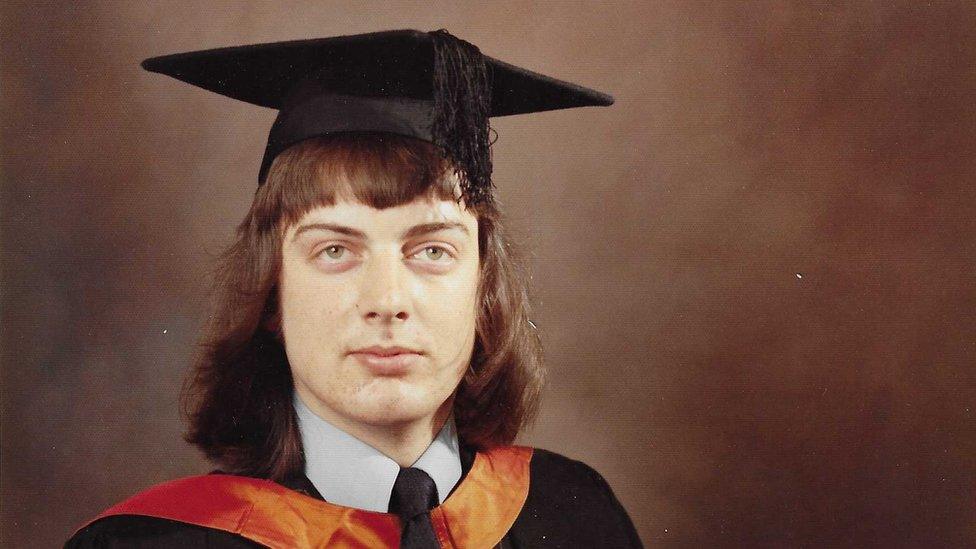
Jim created a new way of life for people with learning disabilities while he was an undergraduate at Cardiff University
He was shocked by the poor state of the people who lived there, dressed shabbily and with heads shaven to combat lice, and demanded action from the institution.
"Jim Mansell went in there at the age of 19... called a meeting and asked for the hospital to be closed down... and that is the beginning of this extraordinary story," said Tim.
Jim, who grew up in Beckenham in Greater London, then founded Cardiff University Social Services (CUSS) and in 1974 asked Alan and four other patients from the institution to move into his student house with himself and two other students.
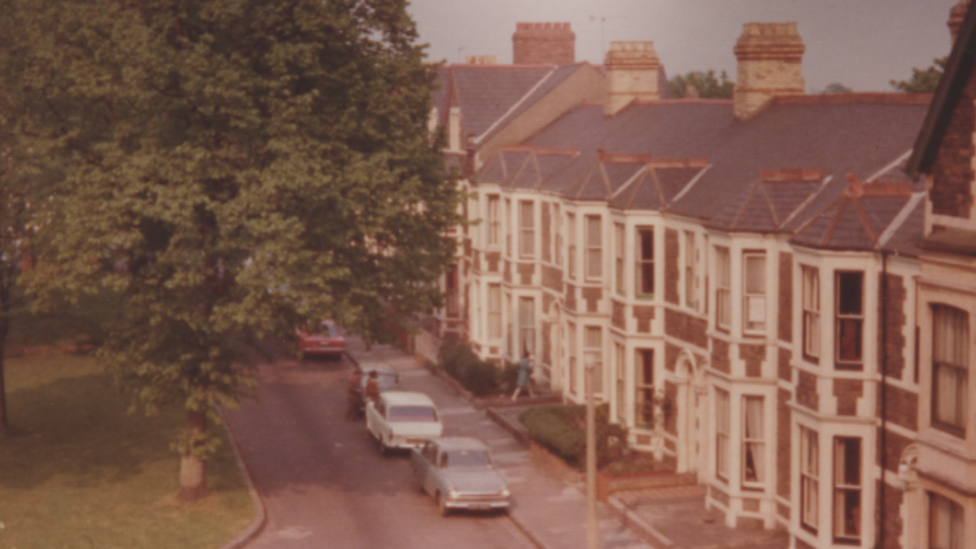
Few know that the model for supported living began at a student house on Ruthin Gardens
The unlikely house share was a huge success.
"It was a very young household and we would have fantastic nights," said Adrian, who lived and volunteered in the house.
"I remember one night in particular when we all just got our pillows out and we were having a pillow fight and a wrestle on the floor.
"These were people who five or six years before had been living in total isolation in a horrible institution with no friends, no laughter and there we all were rolling around on the floor having a fantastic time."
Alan and his friends were able to live ordinary lives, visiting cafes and shops independently.

Alan would often take to the stage to sing with The Spasm Band
Alan's friendship with Adrian, who at the time was a bassist in The Spasm Band, led to him fulfilling his life-long ambition of performing on stage with a band.
"Alan used to come along, started singing the songs and ended up on stage singing with us just about every gig," said Adrian.
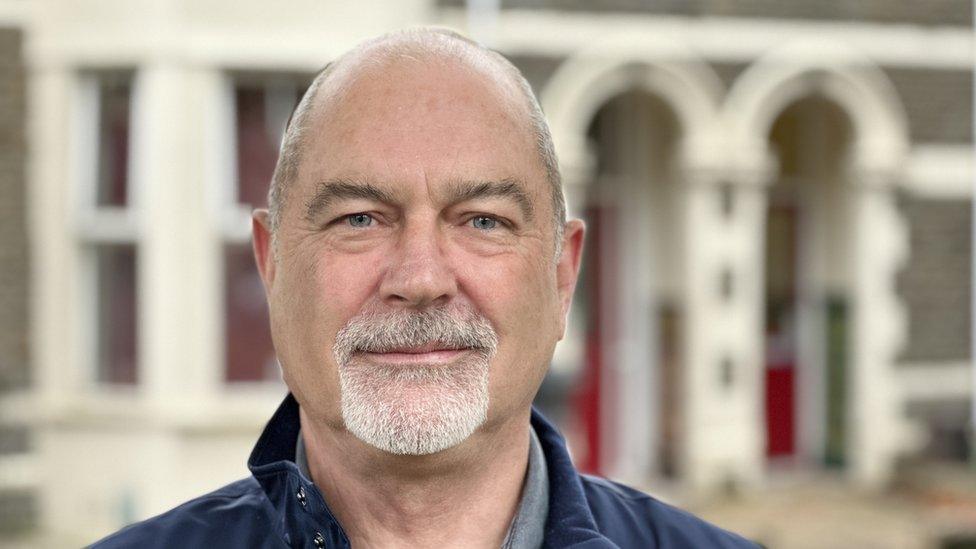
Adrian Roper lived and volunteered at 12 Ruthin Gardens
"The impact of being up on stage in a really popular rock band just put another six inches on him.
"The audience loved seeing him taking part - [they were] fantastic times and a great friendship as well, wonderful times."
Adrian, who went on to have a long career in social care and is now chief executive of Cartrefi Cymru, said since those days there had been an "inevitable professionalisation of social care".
"Back then you were just people. We were just living together, sharing together, being friends together and there's something special about that from a human heart perspective," he said.
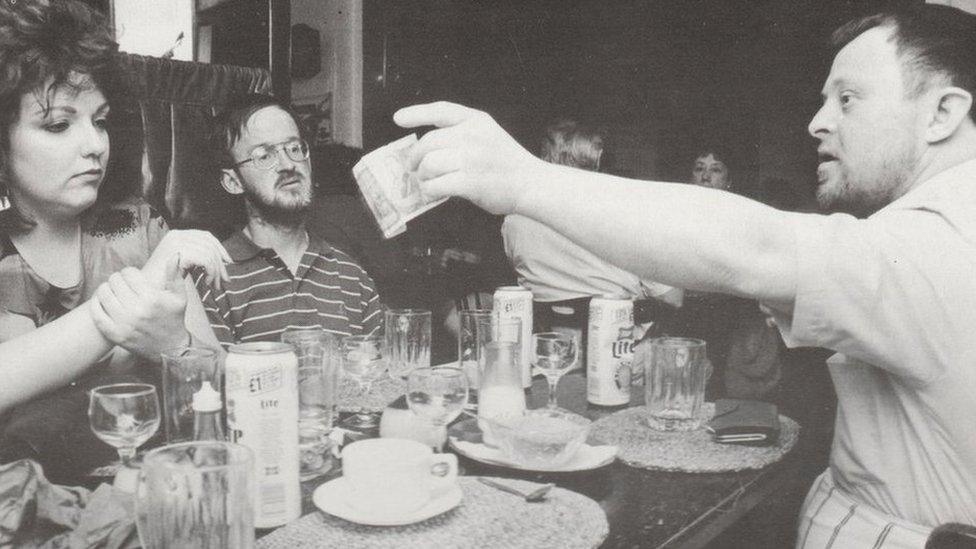
The household were people "just living together, sharing together", said Adrian
The unique living arrangement inspired huge change for people with learning disabilities.
From 1975, with funding from the then Welsh Office, CUSS began opening more group homes with both volunteers and paid staff support workers.
Then in 1983, the Welsh Office launched the All Wales Strategy for the development of services for people with learning disabilities, citing CUSS as an example of best practice that others should emulate.
The strategy directly led to the closure of many long-stay institutions in Wales and the rest of the UK.
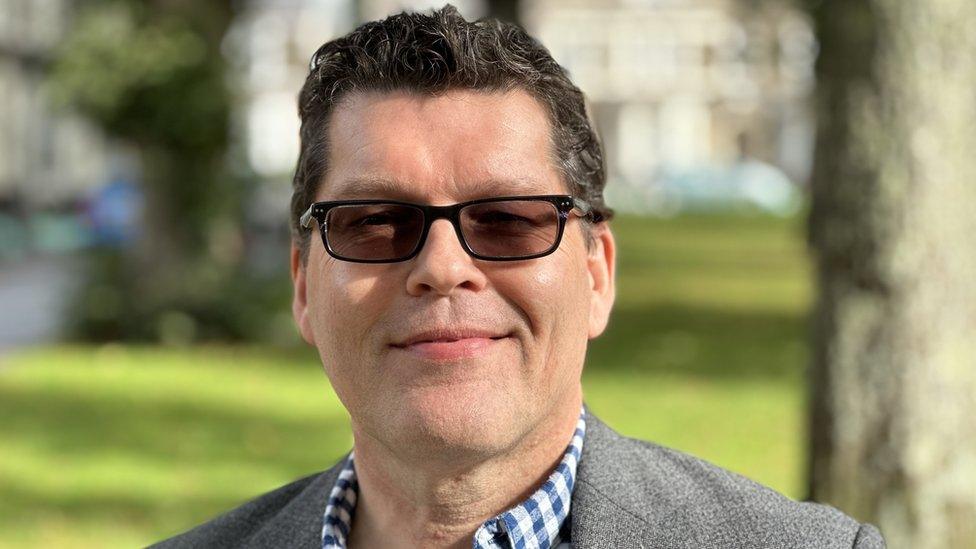
Innovate Trust's CEO Nick French said he was proud of the charity's little-known history
Today, CUSS is called Innovate Trust.
Its CEO, Nick French, said what Jim Mansell created gave people "real opportunities to live a normal life".
"I don't think the importance can be understated really," he said.
"This idea was ground-breaking... at the time I don't think they really understood what they were creating and the massive seismic shift in government policy that would happen as a result."
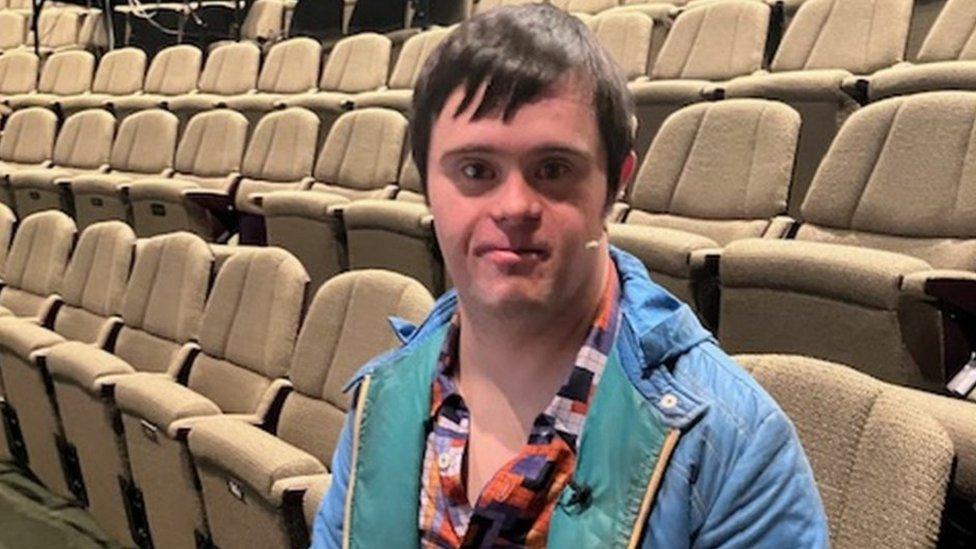
Gareth John has been training with Hijinx Academy since 2015
Actor Gareth John, who has Down's syndrome, plays Alan in the Hijinx production and was moved by Alan's story.
"I find it really horrible," he said.
"He doesn't like being inside the hospital because they don't feed him properly, the doctors are horrible and he doesn't really like it.... [but] he loves the house."
Alan died in 2009 and Jim in 2012, but decades on the legacy of their experimental living arrangement continues to change lives.
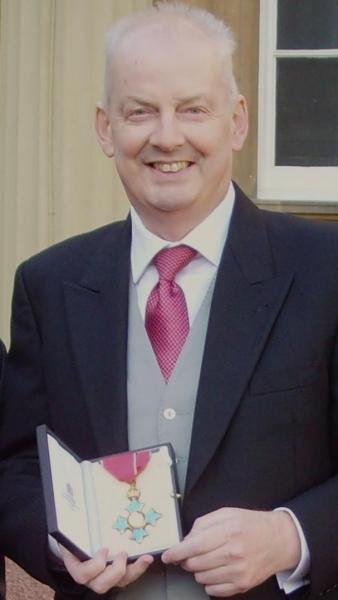
Jim died in 2012
Today this model of supported living is mainstream and the lives of most people with learning disabilities have improved immeasurably.
Adrian sums up his friend Jim's achievements.
"He's the main hero of all of this," he said.
"A 19-year-old student who took on the world, rescued five people and started something magic, not just for them but for the whole of social care."
Housemates runs at the Sherman Theatre until 14 October.
- Published3 October 2023
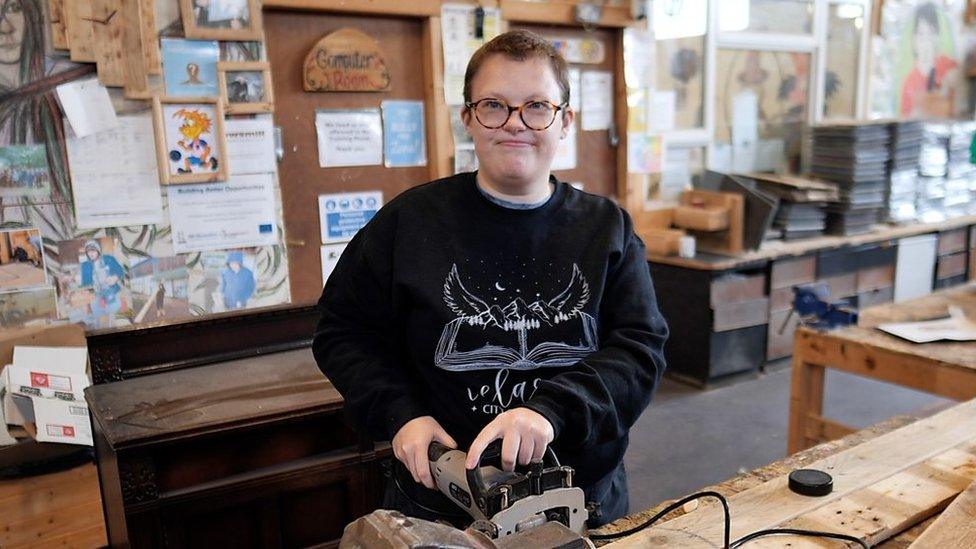
- Published21 August 2023

- Published3 August 2023
